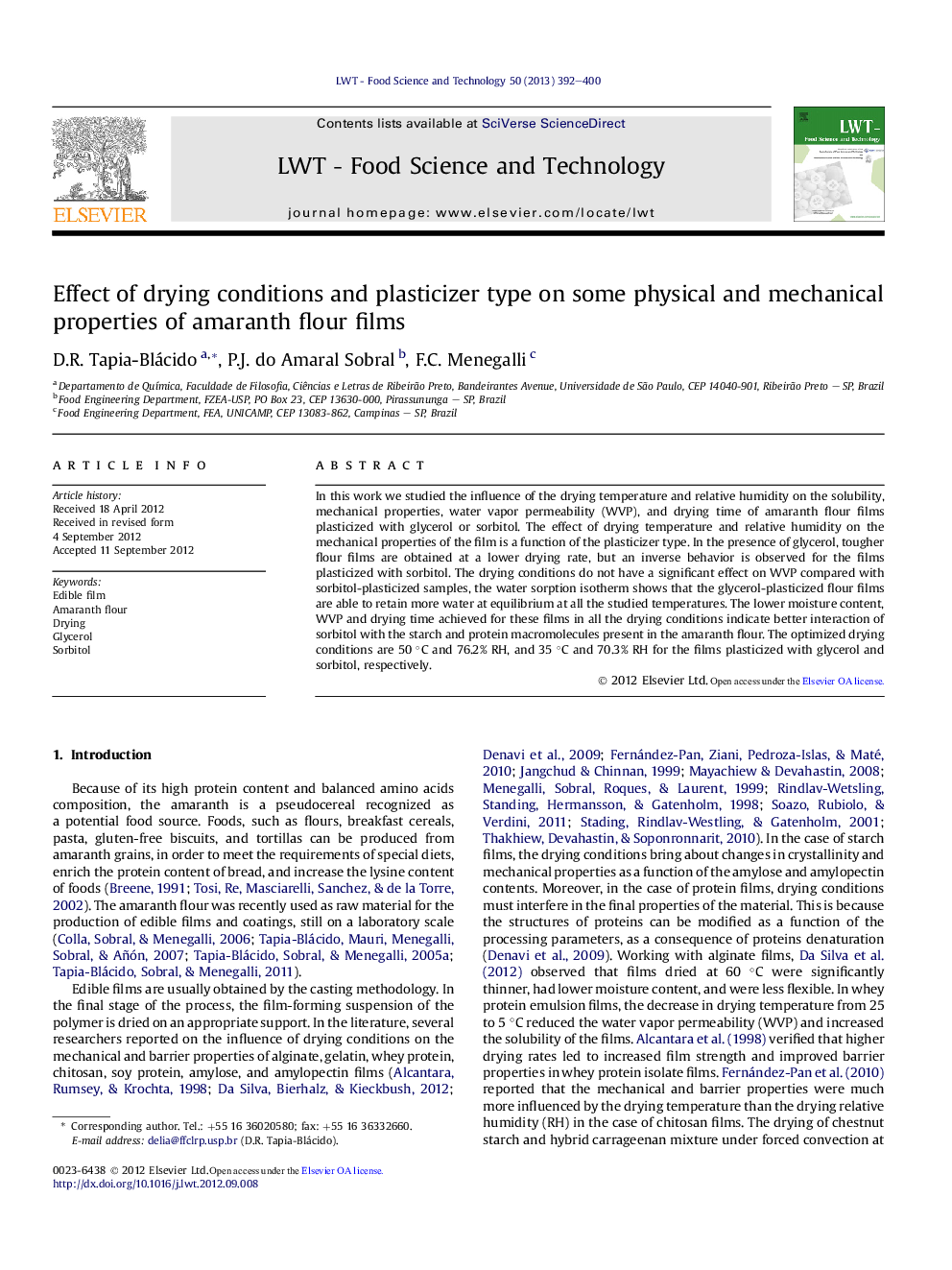| Article ID | Journal | Published Year | Pages | File Type |
|---|---|---|---|---|
| 6404838 | LWT - Food Science and Technology | 2013 | 9 Pages |
In this work we studied the influence of the drying temperature and relative humidity on the solubility, mechanical properties, water vapor permeability (WVP), and drying time of amaranth flour films plasticized with glycerol or sorbitol. The effect of drying temperature and relative humidity on the mechanical properties of the film is a function of the plasticizer type. In the presence of glycerol, tougher flour films are obtained at a lower drying rate, but an inverse behavior is observed for the films plasticized with sorbitol. The drying conditions do not have a significant effect on WVP compared with sorbitol-plasticized samples, the water sorption isotherm shows that the glycerol-plasticized flour films are able to retain more water at equilibrium at all the studied temperatures. The lower moisture content, WVP and drying time achieved for these films in all the drying conditions indicate better interaction of sorbitol with the starch and protein macromolecules present in the amaranth flour. The optimized drying conditions are 50 °C and 76.2% RH, and 35 °C and 70.3% RH for the films plasticized with glycerol and sorbitol, respectively.
⺠The drying conditions do not have any effect on the water vapor permeability of the films. ⺠The drying rate affects the mechanical properties of the film as a function of the plasticizer type. ⺠The optimal drying conditions for amaranth flour film have been established.
